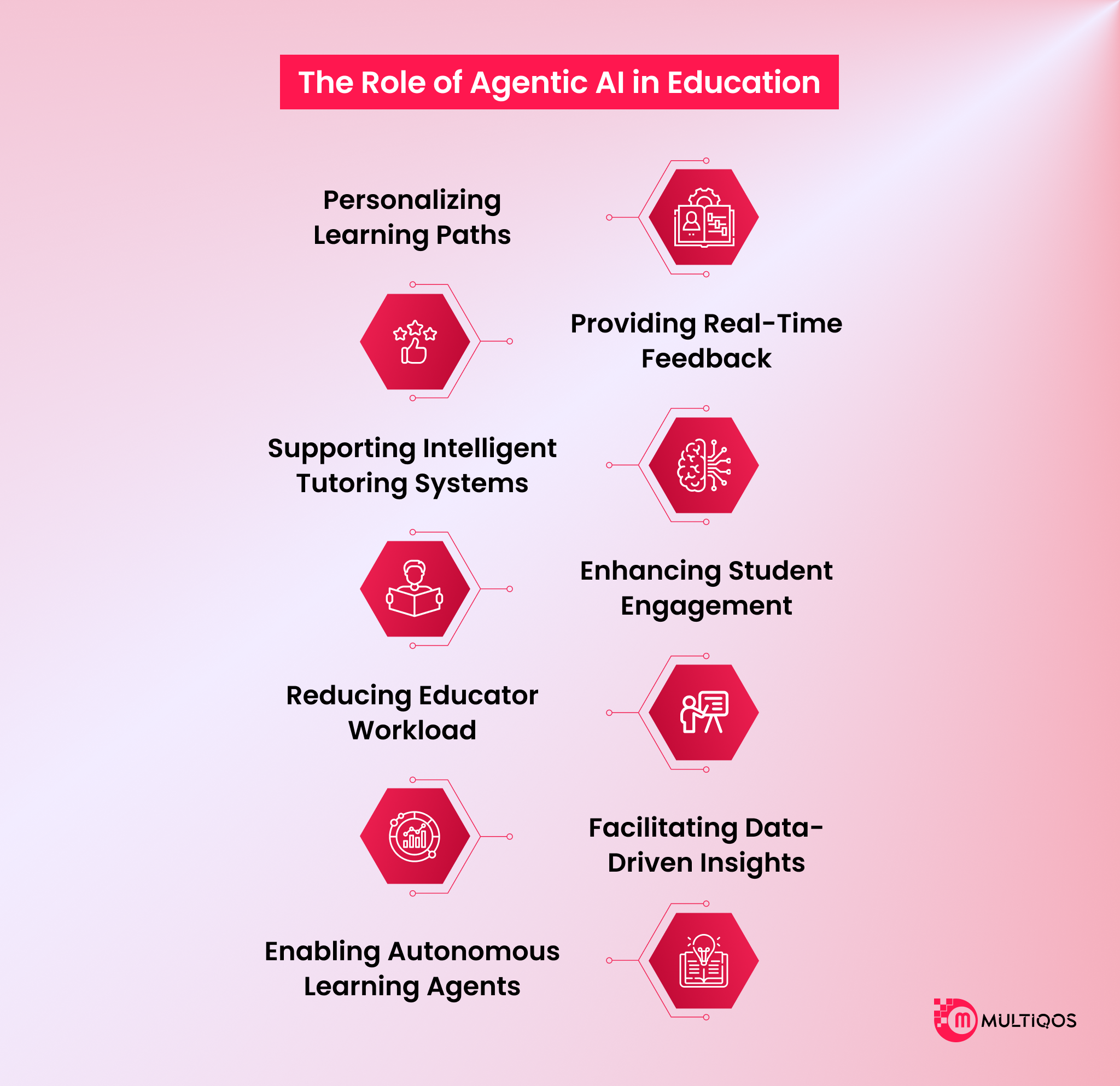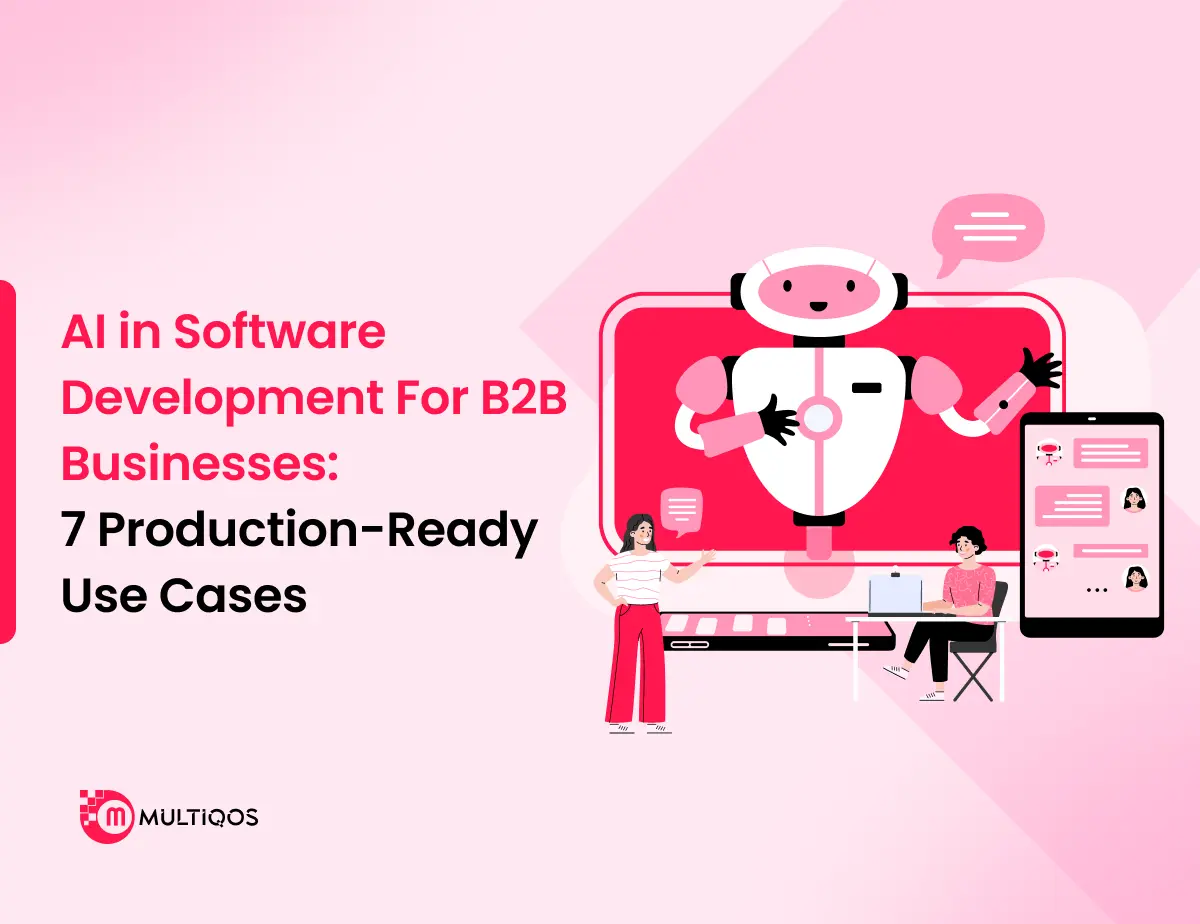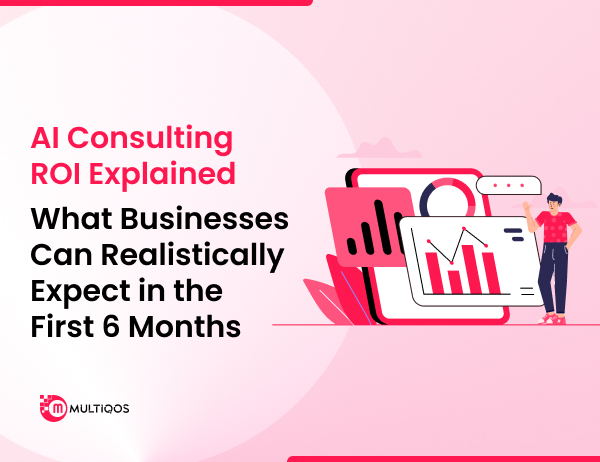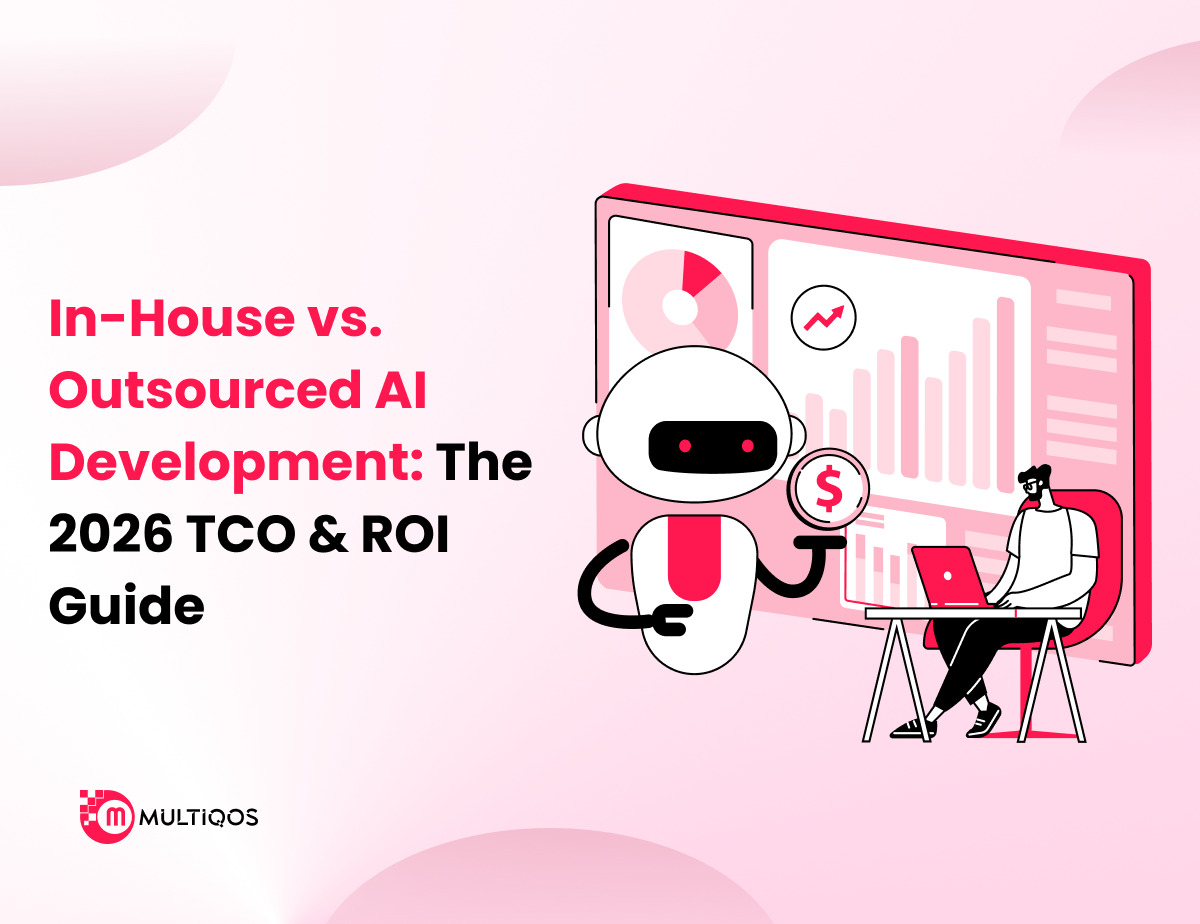Agentic AI in Education: Personalized Learning and Intelligent Tutoring Systems
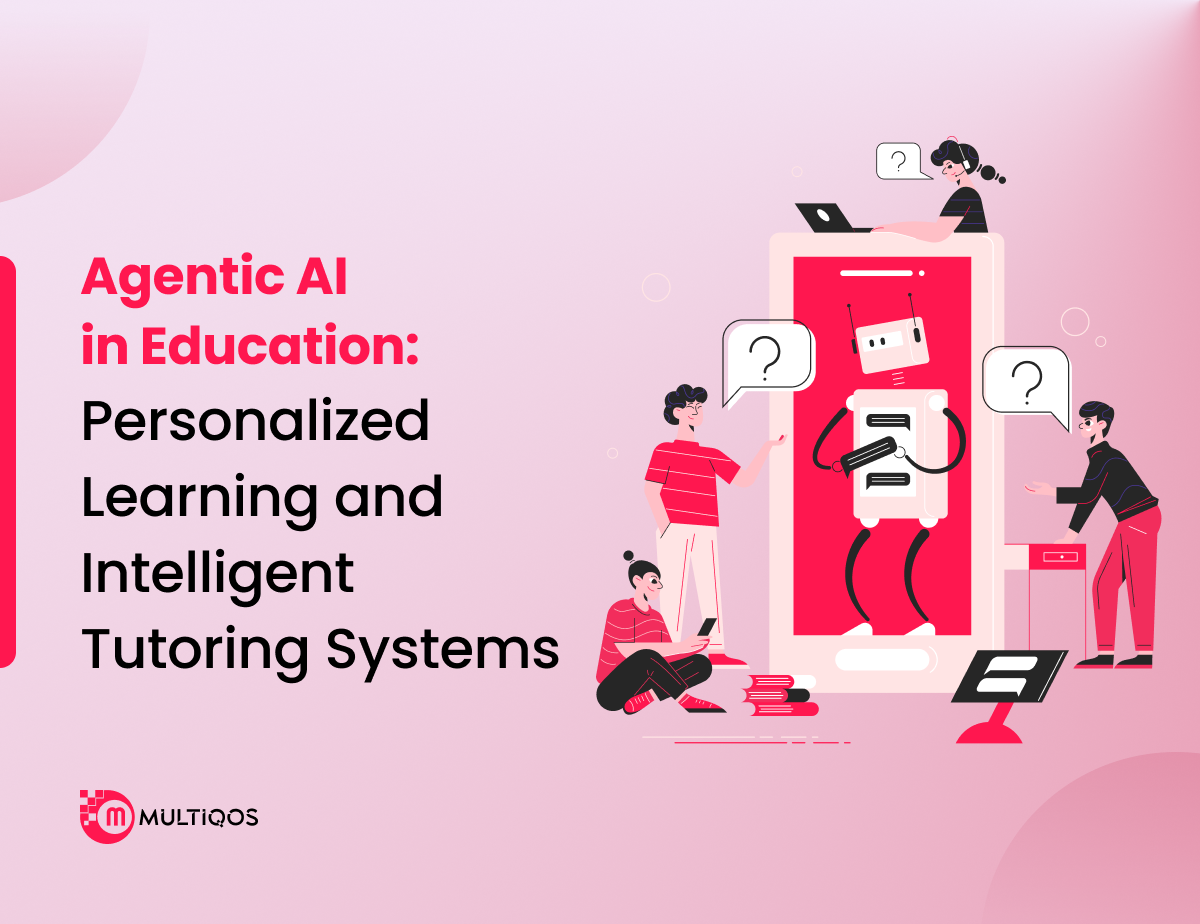
Summary :
Agentic AI in education is transforming the learning landscape by introducing intelligent, autonomous systems capable of adapting to each student’s unique needs, pace, and preferences. These agentic systems don’t just deliver content; they actively engage learners, make decisions, and personalize instruction in real-time.
This blog explores the growing role of agentic AI in personalized learning platforms and intelligent tutoring systems, emphasizing how these technologies are enhancing student engagement, fostering deeper understanding, and supporting educators with data-driven insights.
From real-time feedback and tailored learning paths to AI-driven mentorship and support, discover how agentic AI is setting a new standard for education in the digital age, one that is more adaptive, inclusive, and effective.
Introduction
Imagine a class where learning experience develops dynamically with each student, where education is not only distributed, but actively shaped by intelligent systems that understand and guess individual needs. This is lifted from Agentic AI in education.
As it moves beyond the reactive algorithm, Agentic AI is autonomous to create intensive personal learning routes, making education more adaptable, attractive, and efficient. By using the intelligent teaching system run by Agentic AI, teachers can offer match support that promotes inspiration and achievements as never before.
In this blog, we will find out how Agentic AI actually transforms traditional education into a student-centric journey, which paves the way for smarter classes and bright futures.
Understanding Agentic AI
Agentic AI refers to a new generation of artificial intelligence systems working with autonomy, making context-aware decisions and continuously adapting to the changing environment, without the need for human input.
Unlike traditional AI, which follows the prescribed rules and responds to the command, agentic AI can begin action, can set the goal, and develop based on the response. In education, this means that the AI system can do more than provide lessons; it can guide students to fit their needs and behavior through completely individual, responsible, personalized learning platforms and experiences.
As this technique continues to move on, the future of Agentic AI has great potential to change education. By initiating intelligent teaching strategies, real-time feedback loops, and adaptive learning routes, agentic AI lays the foundation for more inclusive, student-centric classes. The ability to work unassisted and support human professors marks a significant change in more efficient, scalable, and personalized learning platforms that can be developed with both students and institutions.
The Role of Agentic AI in Education
1. Personalizing Learning Paths
Agentic AI in education provides the right to create highly personalized learning experiences by using materials, speed, and teaching strategies based on the needs, preferences, and performance of each student. This level of privatization allows students to move on at their own pace and build confidence in mastering basic concepts before continuing.
2. Providing Real-Time Feedback
Through agentic AI in education, students receive immediate, actionable responses during the learning process. This not only helps cure misconceptions, but also supports continuous improvement by highlighting areas that need to emphasize strength and focus, without waiting for teaching.
3. Supporting Intelligent Tutoring Systems
Agentic AI in education runs the development of intelligent AI tutoring that simulate human-like instructions. These AI supervisors provide dynamic support, students answer questions and adjust the instructional strategies in real time, making each educational support available for scalable and comprehensive target groups.
4. Enhancing Student Engagement
By incorporating interactive elements, gamified learning modules, and emotionally conscious reactions, agentic AI in education improves students’ involvement. These systems can detect signs of resolution or frustration and can convert the learning experience to capture and inspire.
5. Reducing Educator Workload
Agentic AI in education flows up administrative and direct functions such as grading, lesson plans, and material distribution. By automating regular responsibilities, teachers can focus more on creative text design, student mentorship, and professional development.
6. Facilitating Data-Driven Insights
With strong data analysis functions, agentic AI in education helps schools and teachers make informed decisions. By constantly collecting and analyzing students ‘ performance data, these systems identify trends, predict learning outcomes, and recommend interventions to improve educational efficiency.
7. Enabling Autonomous Learning Agents
The development of autonomous teachers through agentic AI in education enables students to interact with intelligent agents who guide their learning journey independently. These agents encourage curiosity, provide analog resources, and promote self-directed learning habits, making education more self-sufficient and student-centered.
Organizations that want to utilize these benefits can turn to Agentic AI development services to create scalable, secure, and exceptional educational solutions to suit a modern learning environment.
The Future of Agentic AI in Education
The future of agentic AI in education is ready to convert the traditional learning environment into intelligent, adaptive ecosystems. Since AI agents are more able to understand references, feelings, and personal learning styles, they will play a quick and active role in leading students through individual academic visits.
These agents will not only deliver content but will also serve as mentors, motivators, and problem solvers by bridging human instructions and scalable digital learning. This development will allow students to take ownership of learning, to promote deep commitment and long-term skills development.
To support this change, institutes and EDTech companies address education app development solutions for advanced education that integrate agentic AI skills. These solutions are designed to build real-time analysis, adaptive learning paths, and autonomous teaching functions directly in digital platforms.
As the technology matures, collaboration between teachers, developers, and AI experts will be important to ensure morally justified and effective implementation, as a foundation stone of educational systems designed for the future.
Wrapping Up
Since Agentic AI continues to reopen education through individual learning and intelligent teaching systems, the ability to really create a truly adaptive and attractive learning experience is endless. Schools and education technology companies that are eager to stay at the forefront of the basket should invest in the right talent for the construction and implementation of these advanced AI solutions.
If you want to innovate and change education, it’s time to hire AI developers who are experts on Agentic AI, experts who can design intelligent systems that understand and respond to the needs of individual students. Adopting this technique not only increases the student results but also paves the way for a smart, more inclusive future in education.
FAQs
Agentic AI refers to an autonomous AI system that can make decisions, adapt, and initiate without constant human input, unlike traditional AI, which usually follows or reacts passively. In education, this means that agent AI knows more dynamic and consistent learning.
They can start by working with AI developers, conducting individual teaching platforms, investing in teacher education for AI tools, and installing clear data governance policies.
The challenges include securing data privacy, addressing algorithm bias, acquiring sufficient AI competence, and evenly integrating the AI system with existing educational tools.
ITS are AI-operated platforms designed to simulate students by providing personal instructions, real-time responses, and adaptive learning methods to simulate one-on-one teaching, and help them master concepts at their own pace.
Get In Touch

